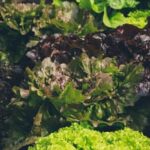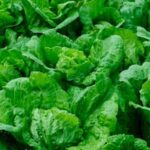Are you interested in growing your own vegetables, but don’t have access to a traditional garden space? Container vegetable gardening may be the solution for you. In this article, we will explore the benefits of using mulch in container vegetable gardens and provide tips on how to effectively apply and maintain mulch in this unique gardening setup.
Container vegetable gardens are a popular option for individuals who have limited outdoor space or live in urban environments. By utilizing pots, planters, or other containers, you can grow a variety of vegetables on balconies, patios, or even indoors. However, just like traditional gardens, container vegetable gardens require proper care and maintenance to thrive.
One key element of maintaining a healthy and productive container vegetable garden is the use of mulch. Mulch serves several important purposes in this type of gardening setup, including conserving moisture, suppressing weeds, and regulating soil temperature. In the following sections, we will delve deeper into the benefits of using mulch and provide guidance on selecting the best types for container vegetable gardens.
Benefits of Using Mulch in Container Vegetable Gardens
Mulch is not only beneficial for traditional garden beds but also for container vegetable gardens. One of the main benefits of using mulch in container vegetable gardens is its ability to retain moisture. This is especially important in containers, where soil can dry out quickly due to exposure to sun and wind. By retaining moisture, mulch helps create a more stable environment for the plants’ roots, reducing the frequency of watering needed.
Another advantage of using mulch in container vegetable gardens is that it helps regulate soil temperature. During hot summer days, mulch acts as insulation for the soil, preventing it from heating up too much. On the other hand, during colder periods, it provides some protection against frost. This stability in soil temperature promotes healthier root development and overall plant growth.
In addition to moisture retention and temperature regulation, mulch also helps control weeds in container vegetable gardens. By creating a barrier between the soil and the air, mulch prevents weed seeds from germinating and growing. This means less time spent weeding and more time enjoying your container vegetable garden’s bountiful harvest.
| Benefit | Explanation |
|---|---|
| Moisture Retention | Mulch helps retain moisture in container soil. |
| Soil Temperature Regulation | Mulch insulates soil from extreme temperatures. |
| Weed Control | Mulch prevents weed seeds from growing. |
Types of Mulch Suitable for Container Vegetable Gardens
Mulch is an essential component for maintaining the health and productivity of container vegetable gardens. Selecting the right type of mulch is crucial for ensuring optimal growing conditions for your plants. There are several types of mulch suitable for container vegetable gardens, each with its own unique benefits and considerations.
Organic Mulch
Organic mulch, such as shredded leaves, straw, or compost, is a popular choice for container vegetable gardens. These types of mulch break down over time, adding valuable nutrients to the soil and improving its overall fertility. Organic mulches also help retain moisture in the soil, reduce weed growth, and regulate soil temperature – all of which are essential for healthy plant growth.
Synthetic Mulch
Synthetic mulches, such as landscape fabric or plastic sheeting, are another option for container vegetable gardens. While they do not contribute organic matter to the soil like organic mulches do, synthetic mulches effectively suppress weed growth and conserve soil moisture. Additionally, they can help maintain a clean and tidy appearance in your garden.
Gravel or Rock Mulch
For those looking for a low-maintenance option, gravel or rock mulch can be an ideal choice for container vegetable gardens. These types of mulches do not break down like organic mulches and can provide excellent drainage around the roots of your plants. However, it’s important to note that they do not contribute any nutrients to the soil and may even raise the temperature of the root zone in hot weather.
When selecting a type of mulch for your container vegetable garden, consider factors such as water retention, nutrient contribution, weed suppression, and aesthetic appeal. Ultimately, choosing the right type of mulch will depend on your specific gardening needs and preferences. Regardless of the type you choose – always ensure that it is suitable for use in containers and will not harm your plants over time.
How to Apply Mulch to Container Vegetable Gardens
Container vegetable gardens can greatly benefit from the use of mulch, as it helps to retain moisture, suppress weeds, and regulate soil temperature. When applying mulch to container vegetable gardens, it is important to follow proper techniques to ensure its effectiveness.
Here are some steps on how to apply mulch to container vegetable gardens:
1. Prepare the soil: Before applying mulch, make sure the soil in your containers is well-prepared. Remove any weeds, loosen the soil, and water it thoroughly.
2. Choose the right type of mulch: Select a suitable type of mulch for your container vegetable garden. Options include organic mulches like straw, shredded leaves, or compost, as well as inorganic mulches such as plastic or landscape fabric.
3. Apply the mulch: Once you have chosen the appropriate type of mulch, spread a layer of it around the base of your vegetables in the containers. For organic mulches, aim for a layer that is 2-3 inches thick.
4. Leave space around plant stems: When spreading mulch around your container vegetables, be sure to leave a small gap between the stem or trunk of each plant and the mulch itself to prevent rotting or pests.
5. Maintain the mulch: Regularly check and replenish your mulch layer as needed throughout the growing season to ensure its effectiveness in your container vegetable garden.
By following these steps for applying mulch to your container vegetable garden, you can help ensure that your plants receive all of its benefits throughout their growing season.
Best Practices for Mulching Container Vegetable Gardens
Choosing the Right Mulch
When selecting mulch for your container vegetable garden, it’s important to consider the specific needs of your plants. Organic mulches like straw, shredded leaves, or compost are great options as they decompose over time, adding valuable nutrients to the soil. Inorganic mulches such as plastic or landscape fabric can also be used to help retain moisture and suppress weeds.
Applying the Mulch
Proper application of mulch is essential for its effectiveness in a container vegetable garden. Make sure to apply a layer of mulch that is 2-4 inches thick around the base of each plant, leaving a small space around the stem to prevent rot. Avoid piling mulch directly against the plant stems as this can create a moist environment that encourages pests and diseases.
Mulching Maintenance
Regular maintenance is key to getting the most out of your mulch in a container vegetable garden. Keep an eye on the condition of the mulch and replenish it as needed, especially during hot and dry periods when evaporation rates are high. Additionally, be mindful of any signs of mold or mildew developing on the surface of the mulch and remove affected areas promptly.
By following these best practices for mulching in container vegetable gardens, you can ensure that your plants receive maximum benefits from this simple yet effective gardening technique. Whether you’re looking to retain moisture, suppress weeds, or improve soil fertility, proper use of mulch can make a significant difference in the success of your container vegetable garden.
Common Mistakes to Avoid When Mulching Container Vegetable Gardens
When mulching your container vegetable gardens, it’s important to avoid certain common mistakes that can hinder the growth of your plants. One mistake to avoid is using too much mulch. While mulch is beneficial for retaining moisture and regulating soil temperature, excessive mulch can actually suffocate the roots of your plants. A layer of 2-3 inches is generally sufficient for container vegetable gardens.
Another mistake to avoid is using the wrong type of mulch. Not all types of mulch are suitable for container vegetable gardens, so it’s important to choose a mulch that will not compact and prevent water from reaching the roots of your plants. Organic options like straw, shredded leaves, or pine needles are great choices for container vegetable gardens as they will eventually decompose and improve the soil’s structure.
It’s also crucial to avoid placing mulch too close to the stems of your plants. This can create a moist environment around the base of the plant and lead to rot or disease. Leave some space around the stems when applying mulch to ensure proper air circulation and prevent any potential issues. By avoiding these common mistakes, you can ensure that your container vegetable garden thrives with the help of well-applied mulch.
| Common Mistakes | How to Avoid |
|---|---|
| Using too much mulch | Stick to a 2-3 inch layer |
| Using the wrong type of mulch | Choose organic options that do not compact |
| Placing mulch too close to plant stems | Leave space for proper air circulation |
Maintaining Mulch in Container Vegetable Gardens
Once you have applied mulch to your container vegetable garden, it is important to maintain it to ensure that it continues to provide the benefits it offers. Proper maintenance can help prolong the life of the mulch and keep your plants healthy. Here are some tips for maintaining mulch in container vegetable gardens:
1. Check regularly: It is essential to regularly inspect the mulch in your container vegetable garden to ensure that it is still doing its job effectively. Look out for signs of compaction, mold, or pest infestation, and address any issues promptly.
2. Replenish as needed: Over time, mulch in container vegetable gardens can break down or be washed away by heavy rain. To maintain its effectiveness, replenish the mulch as needed. This will help retain moisture, suppress weeds, and regulate soil temperature.
3. Monitor moisture levels: Mulch helps retain moisture in the soil, but it’s important to monitor moisture levels regularly. Depending on the type of mulch you are using and environmental conditions, you may need to adjust your watering routine to prevent over or under-watering.
By following these maintenance tips, you can ensure that the mulch in your container vegetable garden continues to benefit your plants and soil. Taking care of the mulch will contribute to the overall success of your container gardening efforts and result in healthier, more productive vegetables.
Conclusion and Final Tips for Successful Mulching in Container Vegetable Gardens
In conclusion, mulch plays a vital role in the success of container vegetable gardens. Not only does it help retain moisture and regulate soil temperature, but it also suppresses weeds and adds nutrients to the soil as it decomposes.
When selecting mulch for your container vegetable garden, consider factors such as water retention, insulation, and the specific needs of your plants. Whether you choose organic options like straw or compost, or inorganic options like gravel or landscape fabric, ensure that the mulch is suitable for use in containers and will benefit your vegetables.
When applying mulch to your container vegetable garden, be sure to lay it down evenly to prevent any pests from finding a way through gaps. Best practices include avoiding piling mulch up against the stems of plants and regularly checking for signs of decay or mold. It’s essential to maintain your mulch throughout the growing season by topping it up as needed and replacing old mulch with fresh material when necessary.
To ensure successful mulching in your container vegetable garden, keep in mind that regular maintenance is crucial. Watering your garden correctly is key to preventing waterlogged or dry patches beneath the mulch. Additionally, monitoring for any signs of pests or diseases under the mulch is important for catching any issues early on. By following these final tips and taking good care of your mulched container vegetable garden, you can look forward to healthy and thriving crops throughout the growing season.
Frequently Asked Questions
What Is the Best Mulch for Vegetables in Pots?
The best mulch for vegetables in pots is organic mulch, such as straw or wood chips. These help retain moisture and regulate soil temperature, promoting healthy growth for the plants.
Should I Put Mulch in My Container Garden?
Yes, you should put mulch in your container garden. Mulch helps to conserve moisture, suppress weed growth, and regulate soil temperature, which are all beneficial for the plants in containers.
What Is the Best Mulch for Tomato Plants in Containers?
The best mulch for tomato plants in containers is organic mulch like straw or grass clippings. This type of mulch helps to retain moisture, prevent soil compaction, and reduce weed growth around the tomato plants in containers.

If you’re looking to get into vegetable gardening, or are just looking for some tips on how to make your current garden better, then you’ve come to the right place! My name is Ethel and I have been gardening for years. In this blog, I’m going to share with you some of my best tips on how to create a successful vegetable garden.





